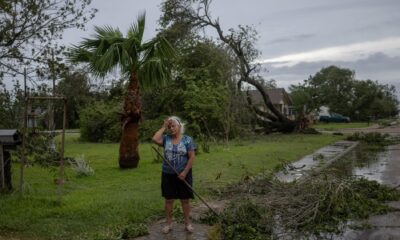When the COVID-19 pandemic hit last March, Forerunners owner Peter Butler thought business at his running store would slow to a crawl.
In reality, it turned out to be the exact opposite.


“Starting about this time last year, we saw a sudden surge which is continuing to today,” Butler said of business at his store on Vancouver’s west side.
Butler said the pandemic has inspired many people to take up running.
“It feels a bit like it was in the 1990s when the marathon boom was on and the triathlons and marathons all took off,” he said. “It’s a bit déjà vu, you might say.”


Butler said some of the people who may have stopped running after the 90s boom may have taken it up again as health officials urged the public to spend more time outdoors during the pandemic.
Steve Mattina of the Running Room also said he’s seen a rise in business.
“People are doing the right thing,” he said. “They’re heading outside for their exercise and there are a lot of people coming back to a sport they hadn’t been with for years.”
Read more:
Is it safe to wear face masks while exercising? Experts weigh in
Shane Park is an airline pilot in his 50s who was a big runner in his youth but fell out of the habit as his life got busier. Now he’s back.
“It’s simple,” he said. “If you have a spare half an hour or 40 minutes, you can just put on your shoes and you can just go for a run as a sport.”
So what advice does Butler have for new runners or people looking to get back into it?
Butler says it’s often best, as the old saying goes, to walk before you can run.
Read more:
How to get fit at home with everyday items
“I would suggest a program where you start with fast walking and then eventually put in 30-second bursts of running and then over a 12- to 16-week period, you get up to about half an hour or 40 minutes of running non-stop,” he said.
Butler recommends running three to four days a week to get enough stimulus while also allowing time to recover.
As for Park, he says running is one of the best antidotes for the stress that comes with life during a pandemic.
“It doesn’t have to be a huge run, whatever suits you,” he said. “But after you’re finished, it’s hard to feel worked up.”
— With files from Paul Johnson
Must See
-




Entertainment
/ 3 days agoFaveSzn’s Revelation: Dating Choirmaster at 10 and Sexual Curiosity
Nigerian singer, Chidozie Ugochinyere, popularly known as FaveSzn, has revealed that she once dated...
By Flying Eze -






Europe
/ 3 days agoWhy Hungarian Prime Minister Orban visited
Two months later, the leaders of China and Hungary met again. Hungarian Prime Minister...
By Flying Eze -






News
/ 3 days agoThree dead and millions without power as Tropical Storm Beryl hits Texas
Man, 53, and woman, 74, killed by fallen trees and third person drowns amid...
By Flying Eze



